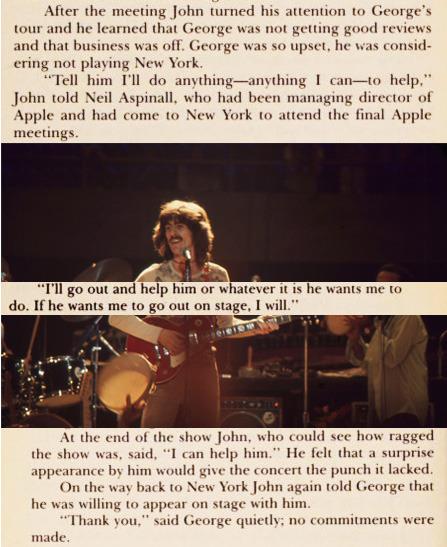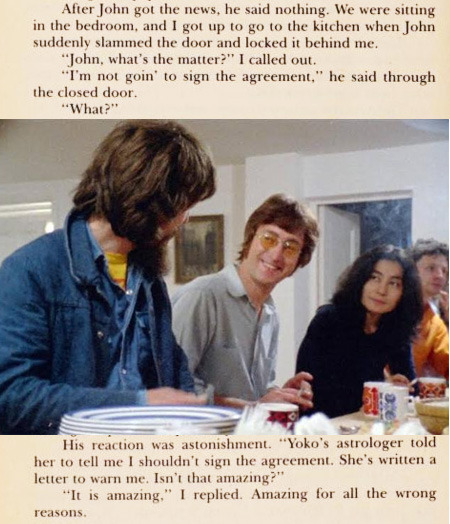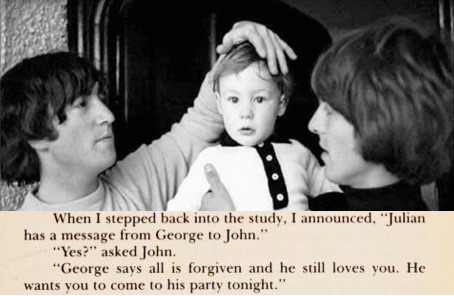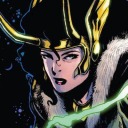Bob & George + Yellow Flowers 🌼


Bob & George + yellow flowers 🌼
More Posts from Thusspokejade and Others






In July [1971], the music press gave reports of the many people George was assembling for the concert. It was rumoured that his friend Dylan might even turn up, but Terry [Doran] told me George was having slight problems with Bob. Dylan had not performed for quite a while. Now George was asking him to make his 'comeback' in the hardest of all performing situations: at Madison Square Gardens with a bunch of musicians he had never played with before. One day during rehearsals, Dylan apparently got uptight and said he just couldn't do it; he was too nervous. George went wild: "You're nervous! What, are you crazy? I've never performed without the other three. At least you're used to performing on your own!" Dylan then explained that the concert was becoming a hassle. Again, George went wild. "I'm the one trying to put it together. All you have to do is sing!" Dylan walked out of the rehearsals. (He was not seen again by George, or anyone else, until the night of the concert. George didn't know if he was coming or not. So when the time allotted for Dylan came in the concert, live and on stage, George looked into the stage wings. There was Dylan, ready to come on. George still didn't know he was going to perform until Dylan started to stroll on stage. Dylan was a major hit, possibly the limelight of the show. It did Dylan good, too. He had regained his confidence and returned to the road for a tour shortly after the concert.)
Waiting for the Beatles: An Apple Scruff's Story, Carol Bedford (1984)


George Harrison during Robert Whitaker's Yesterday and Today photo session | 25 March 1966 © Leslie Bryce
The thing about I'd have you anytime and behind that locked door is that both songs started with george trying to get to bob. He started I'd have you anytime with "let me in here, I know I've been here, let me into your heart" bc bob was distant in that trip to woodstock. Behind that locked door is an entire song with a similar idea but he also wants to show to bob that he is loved by everyone ("the love you are blessed with this/world is waiting for") and by george himself ("with only this short time/I'm gonna be here with you") and also how much george loves to listen to him ("and the tales you've told me/from the things that you saw/makes me want our your heart"). And then on the concert for bangladesh when bob goes there and play in the concert he is basically opening himself to that possibility, yknow??? And when George says "I'd like to bring an old friend of us all, Mr Bob Dylan" he is reinforcing those ideas he mentioned on behind that locked door, that Bob is loved by everyone, but he does it in a much bigger scale somehow










John Lennon, George Harrison, Cynthia Lennon, Pattie Boyd, Cilla Black and Twiggy at the opening of Apple Boutique, December 5, 1967, taken by Terry O'Neill. ㅡ From the book "THE BEATLES" by Terry O'Neill.
“When Julian went to George’s concert the next day, Neil Aspinall, John, and I went to talk with Lee Eastman, Linda’s father. While there, Julian called with a message from George: “All’s forgiven, George loves you and he wants you to come to his party tonight.” We did go the party at the Hippopotamus Club, where George, John, and Paul hugged. John, Julian, and I left New York the following day to spend Christmas in West Palm Beach, Florida.
On December 29, 1974, the voluminous documents were brought down to John in Florida by one of Apple’s lawyers. “Take out your camera, Linda,” he joked to me. Then he called Harold Seider to go over some final points.
When John hung up the phone, he looked wistfully out the window. I could almost see him replaying the entire Beatles experience in his mind.

He finally picked up his pen and, in the unlikely backdrop of Disney World, at the Polynesian Village Hotel, officially ended the greatest rock ’n’ roll band in history by simply scrawling John Lennon at the bottom of the page.”

– FROM MAY PANG’S INSTAMATIC KARMA (2008)


George and Pattie August,9 1967


John Lennon & George Harrison backstage at the Liverpool Empire | 1963 © Philip Jones-Griffiths
"The highlight was the reading of letters from female fans that shocked the group. ‘How do they even know about this stuff!’ was one remark." - Philip Jones-Griffiths

George Harrison remained an enigma to many people, even those who were close to him. For a man who lectured passionately about karma and the meaning of existence, he seemed self-protective and closed off. Witty when called upon, there were also moments when he could be quite boorish. Perhaps it was because he was only twenty years old when the Beatles became a global sensation. That might not seem particularly young in today’s world of social media fame, but at the time, it was uncharted territory for the kind of adulation he was experiencing.
It was also difficult living in the shadow of Paul and John. In the beginning, they were openly dismissive of him. Paul said he always thought of George as a little brother. At first, John pretended not to know his name and sardonically referred to him as “that kid’’. Ironically, one of George’s compositions, Something, became the most covered song in the Beatles catalogue.
This interview was conducted at George Harrison’s palatial home, Friar Park, in Henley-on-Thames, on November 5, 1980. George was gracious but cool. He made a pot of tea in the drafty, vast kitchen of his 120-room estate, and spent two hours lecturing about Transcendental Meditation and the details of a limited edition of his autobiography, I Me Mine, which is certainly how he must have felt getting out on his own.
In 2000, George was diagnosed with oropharyngeal cancer. George died on November 29, 2001, in the company of his wife, Olivia; his son, Dhani; musician Ravi Shankar; and Hare Krishna devotees who chanted verses from the Bhagavad Gita. He was 58 years old and left nearly $100 million in his will. George told Olivia that he didn’t want to be remembered for being a Beatle, he wanted to be remembered for being a good gardener.

‘It was a transcendental experience that was beyond the mind’
On taking LSD
LSD was just such a violent, big experience. Before it I was totally ignorant, and afterward I knew I was totally ignorant and I was now on my way to having some sort of knowledge. I related it to the childhood experience of Catholicism and going to church on a Sunday and seeing all that phoney baloney. The moment I’d taken LSD, it just made me laugh because I understood it inside, just in a flash. I understood what the whole concept of God or religion was just by seeing it. I could see it in the grass in the trees.
It was an absolute truth; like a light going ching. I took three very powerful trips — big, very important — and then it left me a bit unsure because I had to try and figure something out. By that time I had gotten into Indian music and spent time in India, [and] there was so much about it that felt like home to me. Not the surface that you see — all this poverty and the flies and the shit everywhere — [it] went beyond all that. Smells in the atmosphere and the people’s attitude and the music, the food, the religion, everything about it … home.
‘I’d hear his voice wailing at five in the morning’
On the death of Brian Jones of the Rolling Stones
I liked Brian a lot, and later on, I realised it was probably because we were both Pisces. We both had similar natures. He was also similar in that he had a Keith and a Mick, whereas I had a John and a Paul. We both had that problem of two mighty egos to deal with in order just to try and survive. I was very susceptible to dope, and Brian [Jones] was even more susceptible. He’d come [to my house], and I’d just hear his voice wailing at like five in the morning: “George, Geeooorrgggeeee.” So I’d wake up, see what was going on, and I’d look out the window, and he’d be all white and just shattered walking around the garden — just looking for somewhere to be.
I would always meet him at that time of day and just try to calm him down. And I saw him a lot before he died in that sort of circumstance. The last time I saw him, I think, was when I’d been in hospital to have my tonsils out and he came to see me in hospital and the next week he was gone. He was like all of them who kicked the bucket — it was sad because there were too many pressures, really. Not just the pressure of being famous and having the press hounding you day and night and young fans hounding you day and night. Plus the drugs hounding you day and night.
‘F*** it — I could do better than that’
On his childhood inspiration, Cliff Richard
I remember being a kid of about twelve, dreaming of big motorboats and tropical islands and things which had nothing to do with Liverpool, which was dark and cold. I remember going to see Cliff Richard and thinking, f*** it — I could do better than that.
‘I think being Elvis was lonelier than being one of the Fab Four’
On fame — and Elvis Presley
We kept realising we were getting bigger and bigger until we all realised we couldn’t go anywhere —you couldn’t pick up a paper or turn on a radio or TV without seeing yourself. I mean, it became too much. We became trapped, and that’s why it had to end, is what I think … We were like monkeys in a cage. I think it was helped a bit by the fact that it was four of us, who shared the experience. I mean, there was more than four of us, there was Peter Brown and Brian Epstein, but there was only four of us who were actually the Fab Four — whereas Elvis had an entourage and maybe 15 guys, friends of his, but there was only one man having that experience of what it was like to be Elvis Presley. I think that was far lonelier than being one of the Fab Four because at least we could keep each other laughing or crying or whatever we did to each other. It was definitely an asset being in a group.
(source)
-
 bugs1888 liked this · 2 months ago
bugs1888 liked this · 2 months ago -
 puppeys liked this · 2 months ago
puppeys liked this · 2 months ago -
 sothisispeerpressure liked this · 2 months ago
sothisispeerpressure liked this · 2 months ago -
 pony-baby-curtis liked this · 2 months ago
pony-baby-curtis liked this · 2 months ago -
 standingnexttomesblog liked this · 2 months ago
standingnexttomesblog liked this · 2 months ago -
 serendipitytristful liked this · 3 months ago
serendipitytristful liked this · 3 months ago -
 samsos liked this · 3 months ago
samsos liked this · 3 months ago -
 mikenesmithswoolhat liked this · 3 months ago
mikenesmithswoolhat liked this · 3 months ago -
 theteapotofdoom liked this · 3 months ago
theteapotofdoom liked this · 3 months ago -
 jewedlane liked this · 3 months ago
jewedlane liked this · 3 months ago -
 paranacity liked this · 3 months ago
paranacity liked this · 3 months ago -
 girlinthebrightbluejeans reblogged this · 4 months ago
girlinthebrightbluejeans reblogged this · 4 months ago -
 crumbsofmercury liked this · 4 months ago
crumbsofmercury liked this · 4 months ago -
 adryraccon liked this · 5 months ago
adryraccon liked this · 5 months ago -
 shoe-mustard liked this · 5 months ago
shoe-mustard liked this · 5 months ago -
 swinginpicklealmondfreak liked this · 5 months ago
swinginpicklealmondfreak liked this · 5 months ago -
 captnch4os liked this · 5 months ago
captnch4os liked this · 5 months ago -
 mrsjohnbonham liked this · 6 months ago
mrsjohnbonham liked this · 6 months ago -
 gonzoalien liked this · 6 months ago
gonzoalien liked this · 6 months ago -
 therealestwizard liked this · 6 months ago
therealestwizard liked this · 6 months ago -
 mysticalpiratepanda liked this · 6 months ago
mysticalpiratepanda liked this · 6 months ago -
 papapipa11 liked this · 6 months ago
papapipa11 liked this · 6 months ago -
 mycringejunk liked this · 6 months ago
mycringejunk liked this · 6 months ago -
 wilburyscruff reblogged this · 6 months ago
wilburyscruff reblogged this · 6 months ago -
 wilburyy liked this · 6 months ago
wilburyy liked this · 6 months ago -
 w1zkaz liked this · 6 months ago
w1zkaz liked this · 6 months ago -
 d0llh0use-of-h0rr0rz liked this · 6 months ago
d0llh0use-of-h0rr0rz liked this · 6 months ago -
 meekspeaks liked this · 7 months ago
meekspeaks liked this · 7 months ago -
 tangerinefields reblogged this · 7 months ago
tangerinefields reblogged this · 7 months ago -
 lostmymirth liked this · 7 months ago
lostmymirth liked this · 7 months ago -
 ywievengg liked this · 7 months ago
ywievengg liked this · 7 months ago -
 yyhggih liked this · 7 months ago
yyhggih liked this · 7 months ago -
 addenaxlg reblogged this · 7 months ago
addenaxlg reblogged this · 7 months ago -
 addenaxlg liked this · 7 months ago
addenaxlg liked this · 7 months ago -
 lynchianightmare liked this · 7 months ago
lynchianightmare liked this · 7 months ago -
 applypiearts liked this · 7 months ago
applypiearts liked this · 7 months ago -
 chigirisweet liked this · 7 months ago
chigirisweet liked this · 7 months ago -
 thekillersenjoyer reblogged this · 8 months ago
thekillersenjoyer reblogged this · 8 months ago -
 thekillersenjoyer liked this · 8 months ago
thekillersenjoyer liked this · 8 months ago -
 sodarockloverbeatles liked this · 8 months ago
sodarockloverbeatles liked this · 8 months ago -
 thaern liked this · 8 months ago
thaern liked this · 8 months ago -
 project-star-trek liked this · 8 months ago
project-star-trek liked this · 8 months ago -
 001bingus liked this · 8 months ago
001bingus liked this · 8 months ago -
 jokeryuri liked this · 8 months ago
jokeryuri liked this · 8 months ago
